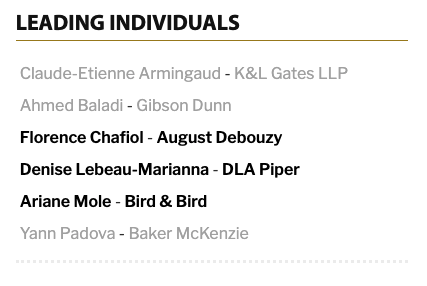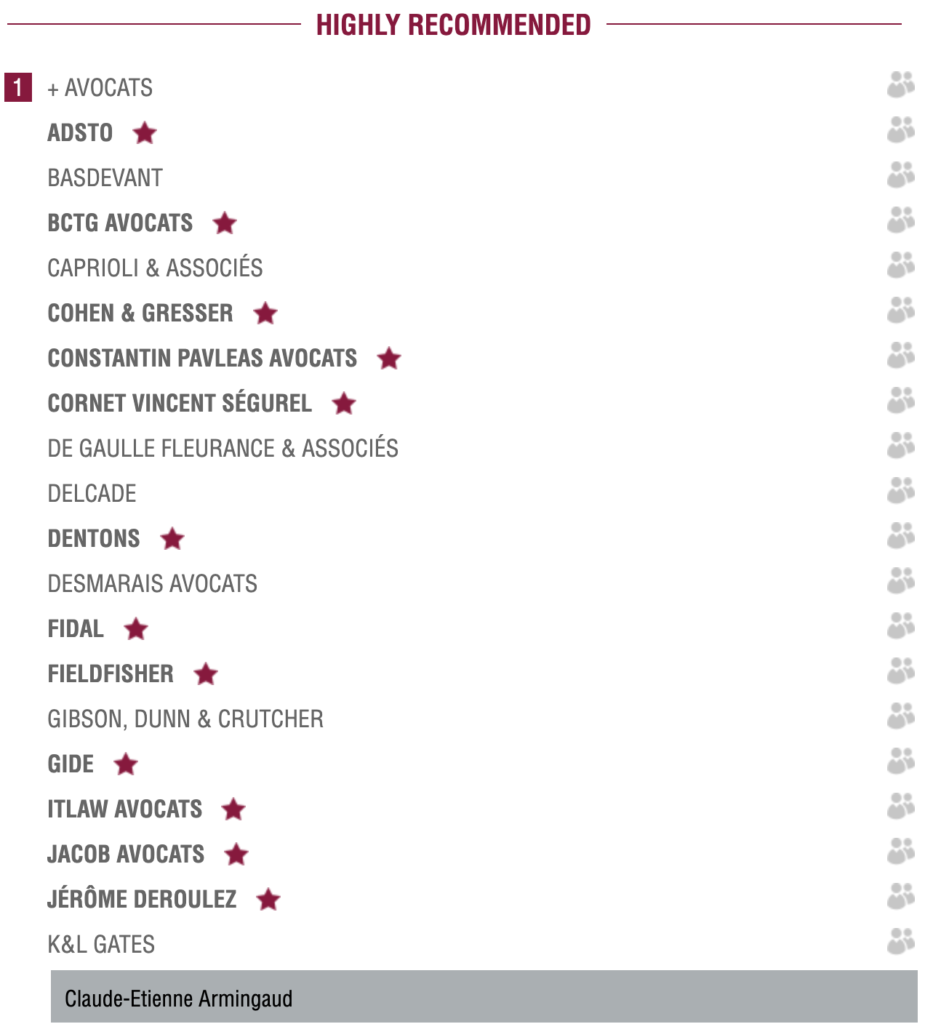
Source: Legal 500

Source: Legal 500
With notable experience in the implementation of GDPR compliance and data protection, the team at K&L Gates LLP coordinates with the firm’s wider European practice to act for multinational clients in the luxury goods, entertainment, and telecoms sectors. Practice head Claude-Etienne Armingaud frequently acts for fintech clients in contentious multi-jurisdictional matters regarding IP and IT data protection. In March 2020, associate Clara Schmit joined from D’Alverny Demont Associés.
Practice head(s): Claude-Étienne Armingaud
Other key lawyers: Clara Schmit
‘Claude-Etienne Armingaud is the best at what he does, plain and simply. Fast, reliable, and efficient.’
‘A team which is very familiar with the evolution of the regulatory framework applicable to data, and which has often participated in the work of developing new guidelines with the CNIL.’
(more…)‘Claude-Etienne Armingaud is very familiar with the issues of data protection and privacy. He supports a large clientele in various fields of intervention.’
K&L Gates ranked “Highly Recommended – Band 1” with Claude-Etienne Armingaud.
Source: Leaders League


K&L Gates ranked “Recommended” with Claude-Etienne Armingaud.
Source: Leaders League
This article names K&L Gates among Global Data Review’s inaugural GDR 100, a ranking of the world’s best data law firms. The GDR 100 is the only global ranking that captures the capabilities, track record, and market reputation of the leading firms in the field. The ranking is based on in-depth submissions submitted by hundreds of law firms around the world, and profiles K&L Gates lawyers including Melbourne partner Cameron Abbott and Paris partner Claude-Etienne Armingaud. Read the article here (subscription required).
We are currently experiencing an interesting time in our economy around the future of work. In describing the future of work, there are four main aspects that come into play: (i) People will be able to work remotely and with flexible schedules; (ii) New industries and jobs will be created complementary to technology; (iii) There will be more entrepreneurship and self-employment; and (iv) Due to technology advancements, there will be fewer jobs that require humans.
Against this backdrop, the COVID-19 outbreak pointed out that these new working norms are going to become the future. In fact, more and more companies wonder whether people can work effectively and achieve a level of work-life balance in light of these new working conditions. At the same time, there is considerable research showing that diversity can be the answer to these considerations, leading to a significant performance advantage.
As law firms around the world have been forced into an unplanned experiment with remote and flexible working, the webinar will aim to explore what the new COVID-19 reality means for the workforce and how can they embrace the pandemic’s opportunities for learning and thriving in the workplace.